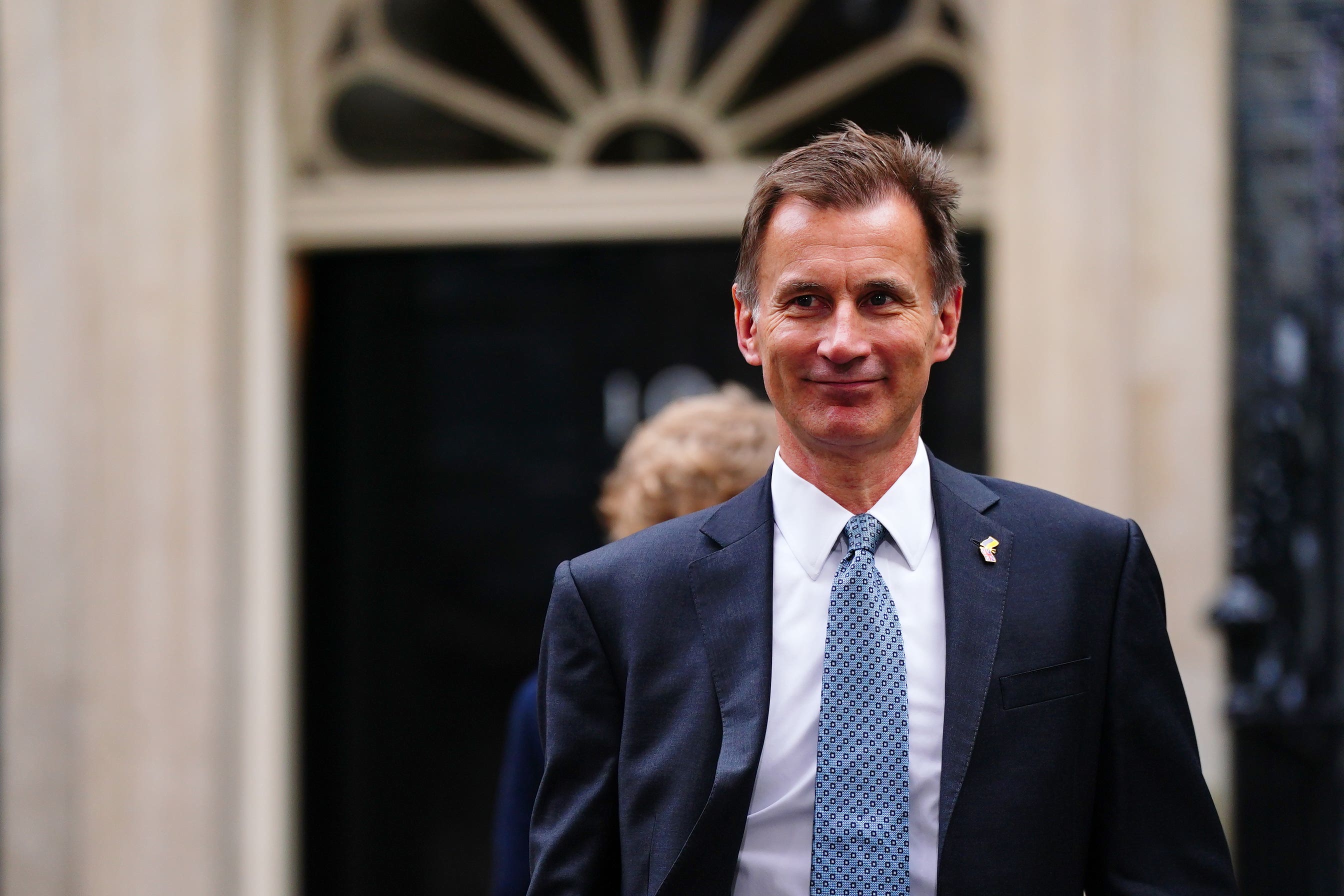Chancellor Jeremy Hunt ‘must protect nation’s mental health’ in upcoming budget
Nine mental health groups warned that the nation is facing a crisis in mental health.

Your support helps us to tell the story
From reproductive rights to climate change to Big Tech, The Independent is on the ground when the story is developing. Whether it's investigating the financials of Elon Musk's pro-Trump PAC or producing our latest documentary, 'The A Word', which shines a light on the American women fighting for reproductive rights, we know how important it is to parse out the facts from the messaging.
At such a critical moment in US history, we need reporters on the ground. Your donation allows us to keep sending journalists to speak to both sides of the story.
The Independent is trusted by Americans across the entire political spectrum. And unlike many other quality news outlets, we choose not to lock Americans out of our reporting and analysis with paywalls. We believe quality journalism should be available to everyone, paid for by those who can afford it.
Your support makes all the difference.Nine mental health groups have called on the Chancellor to protect the nation’s mental health in his budget by uprating benefits by inflation and maintaining funding for services.
The organisations, which include Rethink Mental Illness, Mind, and the Royal College of Psychiatrists, warned that people will die early if mental health funding is cut.
They said the nation is facing a crisis in mental health, with millions of people expected to need new or extra support as a result of the coronavirus pandemic, and “many more” set to be made unwell by the cost-of-living crisis.
Jeremy Hunt has said he will prioritise help for the vulnerable after it was revealed that inflation reached 10.1% in September.
His budget is due on November 17.
In an open letter to Mr Hunt, the groups welcomed his pledge, but said providers, practitioners and those who benefit from services are anxious about the prospect of cuts.
The letter reads: “We appreciate difficult decisions need to be made about the nation’s finances but reducing the funding available to mental health services would be totally inconsistent with protecting the most vulnerable.
“It would also be a false economy as many more people would become more seriously unwell, unable to work and die prematurely.”
It goes on to say that it is “vital” that poverty reduction measures form part of the Chancellor’s plan, as poverty is the main risk factor for mental and physical ill health.
It comes as more than a hundred groups wrote to Prime Minister Rishi Sunak calling on him to honour his pledge when Chancellor, to uprate benefits by inflation.
They say benefits must be increased as soon as possible, rather than waiting until April, or else low income families may not be able to afford to pay rent or feed their children this winter.
This would “send a clear signal” that the Government is serious about prioritising the needs of the vulnerable.
This week during his first Prime Minister’s Questions, Mr Sunak said the Government will have to take “difficult decisions to restore economic stability and confidence”, but that he “will always protect the most vulnerable”.
The letter reads: “The cost-of-living crisis continues to intensify. Inflation is forecast to remain extremely high for many months to come. In the face of such economic uncertainty, it is right that you provide households on low incomes with the reassurance they need and uprate benefits by inflation as soon as possible.”
Subscribe to Independent Premium to bookmark this article
Want to bookmark your favourite articles and stories to read or reference later? Start your Independent Premium subscription today.